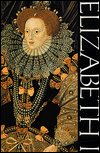
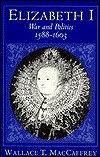
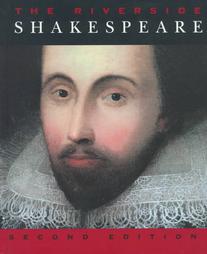
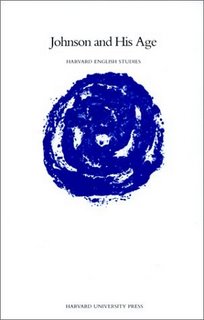

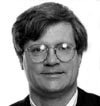
I was graced not only with a great support staff at North House but also a series of non-residential "Professorial" mentors from my Freshman year forwards. I've already discussed John Brewer. Now you'll meet the late Herschel Baker, Wallace MacCaffrey, James Engell, and Margaret Corey, all of whom I had at least two courses with.
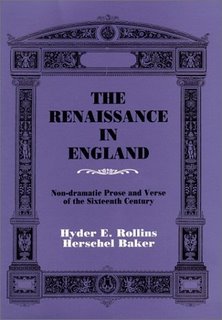
Herschel Clay Baker
As a wayward, sophomore-standing Biochemistry concentrator, I wanted to branch out my second semester of college and take a real literature class not involving mere composition. The choices came down to English 12B: Shakespeare (not at that time part of the CORE as Literature and Arts A-41) and English 131: Milton. The former was taught by the brilliant Marjorie Garber, although she was a bit too Freudian at that time for my tastes. O.K., O.K. so a sword is a phallus, we get it now please move on! Her large lectures were masterly combos of rhetorical display and serious erudition. The size of the lectures was really the only problem as they offered no respite from the also large intro science classes I was hoping to evade. English 131 on the other hand had maybe 30 students, mostly honors juniors and seniors and potentially one crazy first year sophomore-standing non-concentrator. Here's some of what what the 1981–82 Confi Guide had to say about Milton:
In a department which seems to specialize in offering vague, generalized outlines instead of real courses, English 131, "Milton," is truly an exception.Sold!
* * *
Herschel Baker's charismatic lectures crack open the often lofty and obscure material and reveal the true wealth of beauty and meaning in Milton's work.
* * *
By the time he gets around to the three biggies, Baker sometimes has to speed up his lectures to get through the material, and you get the impression he has more to say. But Baker, when hurrying through material, is still more informative than most professors taking their time.
* * *
Most of the students who take English 131 are English concentrators, but since Baker does not assume any foreknowledge of the material, the course is open to anyone who is willing to put in a decent amount of work and doesn't want to deal with the usual survey-course pitfalls.
Herschel Clay Baker was a Dallas native who attended hometown SMU before coming to Harvard to study with Douglas Bush and earning a PhD in 1939. After being made a junior faculty member, he returned to teach at SMU until he was called home by Mother Harvard, where he spent the rest of his long and productive academic life. Starting with early work on John Philip Kemble, Herschel would come to focus primarily on Renaissance historigraphy and humanism. He co-authored a two volume anthology of renaissance poetry and prose with Hyder Rollins which though out-of-print for a while in the 1980s has never really been bettered. There are the two famous short books (really reprinted lectures): The Wars of Truth and The Race of Time, the latter being the famous Alexander Lectures at the University of Toronto. For my generation of students, however, Baker will always be best known as the helpful guide through the morass of Shakesperare's History Plays via his insightful Riverside Shakespeare introductions, though our book (the first edition not pictured above) had the much cooler looking brown cover with yellow and gold scrawls. Herschel Baker became Chairman of the English Department in 1952. Later he would be named the Fancis Lee Higginson Professor of English Literature.
A dapper dresser in old fashioned 3 piece suits with an ever present homburg and the classic 1950s green Harvard book bag slung over one shoulder, Baker made almost a matched pair with that other great old professor, William Alfred. In fact both were in their ways institutions at Harvard but still outsiders: Baker for his courtly, serpentine Texas-inflected cadences sometimes ridiculed by certain junior Yankee Americanists hailing from the Westchester 'burbs (Herschel would have shrugged and thought, "What can you do? He's from New York, that's just how they are") and Alfred for his working class, Roman-Catholic Brooklyn Irish-American roots (famous prize-winning, Faye Dunaway career-breaking play notwithstanding).
Among his other "quirks" were the pipe-smoke-filled, cramped Widener Stacks office in which he held court, preferring that to office hours elsewhere. And, of course, pre-computer, he proved to be no mean typist. A skill-lessness with which I can sympathize but which word processing programs have made moot. Many an interesting note appeared on quarter-sized departmental stationery replete with xs and other crossings out and that inimitably tiny chicken scratch penmanship. Then there was his binder notebook for Milton, which he would open with a flourish at the beginning of class and close equally dramatically at its end. Every time he opened that thing, yellowed bits of dust or perhaps it was just mouldering paper that was chemically dissolving mushroom-clouded into the air. Jokes about a dry-as-dust and dessicated academic were completely plausible until Baker began to lecture in those honeyed Ciceronian periods. I always felt that if in my formal academic prose I could mimic his speaking voice I would have something.
English 131 in the spring of 1982 was the last major lecture class Herschel Baker gave. The class presented him a commemorative plaque engraved with some appropriate lines from Paradise Lost:
Geatly instructed I shall hence depart,
Greatly in peace of thought, and have my fill
Of knowledge, what this vessel can contain;
Beyond which was my folly to aspire. (XII, 557-560)
I hit the Daily Double by also taking the last class Herschel ever lead, English 192C: The Renaissance in England, a small seminar in which I wrote about authorial duplicity in the Preface to Robert Burton's Anatomy of Melancholy, all the while reinventing Stanley Fish's Self-Consuming Artifacts without realizing it. Or perhaps it was just a re-fashioning! Ironically Herschel lived in Wellesley next door to my father's Harvard mentor, Konrad Bloch, under whom he did a Biochem post-doc from 1960–62.
James Engell
Jim is a humanist of the old school who might be troubled by some of my wilder predilections for things Continental, but he is also a soul deep thinker about the great truths and values of the Humanities and has been a staunch warrior in the battle against rampant scientism and corporatization on campuses across the US.
A 1973 magna cum laude graduate of the college, Jim recieved his PhD in English in 1978 becoming arguably W. Jackson Bate's last great protege, a fact about which I once twitted him, a riposte he took with good graces in the spirit it was offered nevertheless offering at least as good if not better than he was given. More on this later.
I took three classes with Jim—one each my sophomore, junior, and senior years: English 145: Major Satiric Poets, English 190: Major Critical Approaches, and English 256C: Coleridge (co-taught by the aforementioned Jack Bate and featuring a smorgasbord of future academic all-stars like NYU's Cyrus R.K. Patell and my fetching red-headed classmate Anne Margaret Daniel).
One exciting assignment in Satire involved devising our own original satiric verses. Entering the spirit of the thing, I took the greatest academic risk I had ever taken by imitating not only a specific verse type but also the notions of its content. My choice was Pope's "Epilogue to the Satires: Dialogue I" in which a "friend" threatens to call treason on Pope's own writing; in my case I critiqued the very issuer of our assignment, Prof. James Engell. At semester's end, Jim produced a little pamphlet, Satires by Divers Hands. I was amused to find that my effort had drawn its own imitative response:
Epilogues to a SatireLi. A bright young Angel, he would labor on,
Romantics to Enlightenment upon.
At Harvard College, he would seize the bait,
as Ph.D. could not for tenure wait,
Half-score and sev'ral months was all it took,
Now full, our Angel, in the Tower dwell'd,*
and plann'd, and dread ten-headed monster quell'd.
In class a brilliant star, au naturel,
Precocious and loquacious, he held spell:
Oft' would he quote, and oft'er still ask them,
From whom such memorable words did stem,
Be they allusion or strict paraphrase,
when said and done, he would his eyebrows raise,
and puzzl'd look when nothing echo'd praise.
Next would he have his pupiuls imitate,
'til unrhym'd words against the conscience grate.
A-
Fr. Stop: You threaten danger, take respite,
Before Professor's pen your grade will slight.
* The metaphorical tower here in reality was the top floor garrett office of Engell in Warren House, then home to departmental and senior faculty offices. Junior faculty were even further afield out Kirkland Street just beyond and across from William James Hall. I won't speculate on why his senior colleagues placed him there.
***
Fr. I think this treach'rous stuff, it treads the line;
A mutineer, like cats, takes life by nine,
So Strike him down with cat-o'-nine tails' blow
And flog in sense, if sense you can't bestow!
Prof. But there's a certain something, j'ne sais quoi,
that makes me hesitate t'enforce the law
(the harsh sea law which DANA helped reform,
A gentle man who braved the harshest storm),
A certain wit, an understanding part--
And damn 'me, 'sides it catches Pope's own art.
Angelum amo, sed veritas amo magis.*
Fr. Watch out; he'll turn philosopher and plan
Next year to write a new Essay on Man.
* The gentle reader will forgive the bad metrical variation on "Amicus Plato, sed magis amica veritas" (I'm a friend to Plato but a greater friend to truth.) The editors have discovered a variation of this:What lashes the due? twenty-less a score,
For angels I love, but truth I love more.
Whew! Bullett dodged, but then you'd expect someone teaching a course on satire to have a sense of humor, no? But then you haven't read Howard Weinbrot's Alexander Pope and the Traditions of Formal Verse Satire have you. Kind of puts me in mind of the Buzzcock's debut single from the Spiral Scratch EP.
I did well in that class. Stopping by the next fall to pick up my marked up final exam blue books, Jim floored me by asking to become a research assistant. I did and spent the rest of the year scurrying around Widener and into the dungeon that was the theatrical holdings in Pusey picking up quotes, references, etc. which were deployed, I believe, partially in Johnson and His Age (as pictured above) and moreso in Forming the Critical Mind: Dryden to Coleridge.
Wallace T. MacCaffrey
Wally MacCaffrey is one of the great Early Modern British historians of the twentieth century: tripartite chronicler of Elizabeth, surveyor of Exeter, beloved husband of Isabel Gamble (herself no mean slouch as a literary critic) and with whom he had the rare privilege of being a husband and wife Departmental Chair team, deliverer of impossibly smooth lectures without aid of notes, and most importantly patron of the turnip and its historical significance.
MacCaffrey graduated from Reed College in 1942 and took his PhD from Harvard in 1950. He taught at UCLA and Haverford before returning to Harvard's History Department in 1968, which he also chaired for a little over a decade. According to the notes for the 2003 American Historical Association's "Awards for Scholarly Distinction"
His first book, Exeter, 1540–1640: The Growth of an English Country Town (Harvard Univ. Press, 1958), set the agenda for subsequent work in early modern English urban history and remains a model for all similar studies.Just as impressive was his early article on "Place and Patronage in Tudor England" in S.T. Bindoff's J. E. Neale festschrift, Elizabethan government and society (Athlone, 1961), remaining half a decade later the definitive statement on its topic. And I haven't even broached the triumvirate of tomes on Elizabeth starting with Princeton University Press' The shaping of the Elizabethan regime (1968):
an original and successful study of the first decade of Elizabeth's reign, which put foreign policy into its proper context as one aspect of the many-sided problem of government not to be separated from the other potential hazards facing the fledgling regime.
MacCaffrey has been a prolific contributor of "lives" to the DNB. Upon retiring in 1990, he moved to the original Cambridge and was affiliated with Trinity Hall and as a fellow of the Royal Historical Society.
I took the Tudor Stuart sequence from Wally consisting of English 1400A: Early Modern Britain I, 1450–1600 and English 1400B: Early Modern Britain II, 1600–1714. We turn to the Confi Guide one last time in this blog:
Three times a week Wallace MacCaffrey mounts the podium of Harvard Hall 104 and delivers a flawless, noteless lecture. Mostly he talks about the political history of England during the post-medieval period. But his occasional digressions into the sex-lives and personalities of some of the bawdier monarchs—always discreetly phrased—are well worth the journey through the murky depths of England's agricultural and constitutional history.Heavy duty reading list with a lengthy research paper and no sections, but what memories.
* * *
In either semester, or over the whole year, MacCaffrey is attuned to his students' every move. Take this man to the faculty dinner. He'll entertain you with stories of his trips to England, and he'll even remember your name.
Like a gangly MacCaffrey late to class accidentally sprawling a huge roll out map across the Widener steps. And speaking of Widener, what about the top floor kingdom that was his official study. I mean the central island in that place must have been fifteen feet long and the views across Mass Avenue towards the Charles (at least on one of those rare Cambridge sunny days). I was privileged to nominate Wally for a debut teaching award administered by Undergraduates in spring 1984 and proud to be chosen from among his nominators to present a short speech of which this entry is a much extended and much revised version when he so deservedly won.
Margaret Corey
When we get to the first woman on this list, it's no surprise she's not a tenured faculty member, but rather a graduate student lecturer, such is the duality of the modern Ivy League academic thing to mimic Patterson Hood's prophetic phrase, especially in the Humanities where women are disproportionately underrepresented at the highest levels of the field, especially with relationship to their numbers at the lowest levels (i.e. as undergraduate concentrators or "majors" in the "real" world beyond Cambridge 02138). Margaret Corey once saw some pictures of Westwood and decided to leave her beloved Queens, New York City following Horace Greeley's advice, well except the bit about "young man." She earned an A.B. in English with highest honors from UCLA where her mentor was Dick Lanham and then headed back east for graduate work at Harvard. Eventually she would complete a dissertation under the direction of Jim Engell about Abraham Cowley, Royalist poet-playwright. However, she left academia to pursue work in the financial services industry.
My two courses with Margaret were year-long junior and senior tutorials in History and Literature of greatly variant natures. I used junior tutorials to read widely across fields, but also specifically to fill in gaps from my coursework, like Victorian Poetry. How many American undegrads can say they have read Browning's The Ring and The Book in its entirety? As always Margaret had this giant slab of butcher block white paper on her barren desk and by each two hour session's end would have drawn complex Mandelbrotian fractal displays of intersecting balloons, underlined names, themes with question marks by them, and the like. I only regret that I never asked to keep just one such sheet as a memento. But it taught me a great deal about brainstorming and lateral thinking (something I've always been pretty good at). What has Always been my real weakness is old fashioned systematic thinking. Two years of Corey boot camp helped me begin to resolve this issue, though I struggle with it to this day. strangely enough, I decided to write my thesis about the historical novels of Scot (specifically those about real and imagined Jacobite uprisings) with a venture into his historiography on Napoleon and revolutions, seemingly a perfect topic to meld history and literature together. Whatever the thesis' shortcomings it did possess a clever Watt-inspired title: "The Novel Uprising: Sir Walter Scott and Revolution." Well, I took my first class featuring novels spring semester senior year. So here I go again, planning on writing my senior thesis on a genre I had yet to study seriously in college let alone learn how to write about. Salvaging a magna plus out of that opening prospectus is a feat for which Margaret owes a great deal of thanks.
In future I'll try to keep these entries shorter, but Harvard played a really significant role in my future life even if was but a short four year stint.
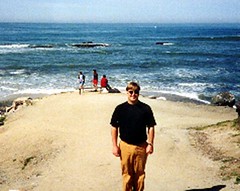
No comments:
Post a Comment